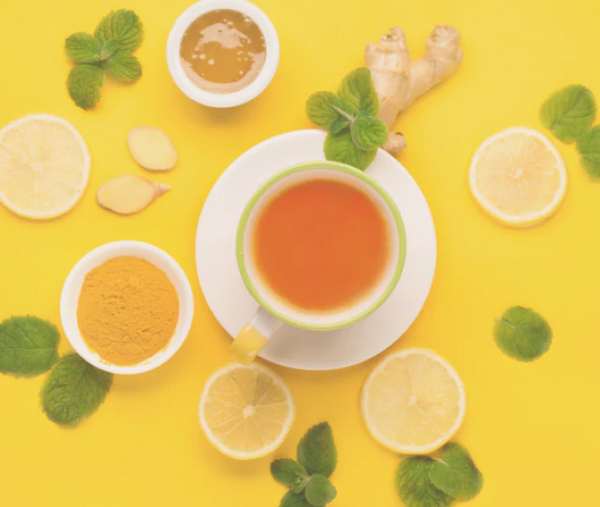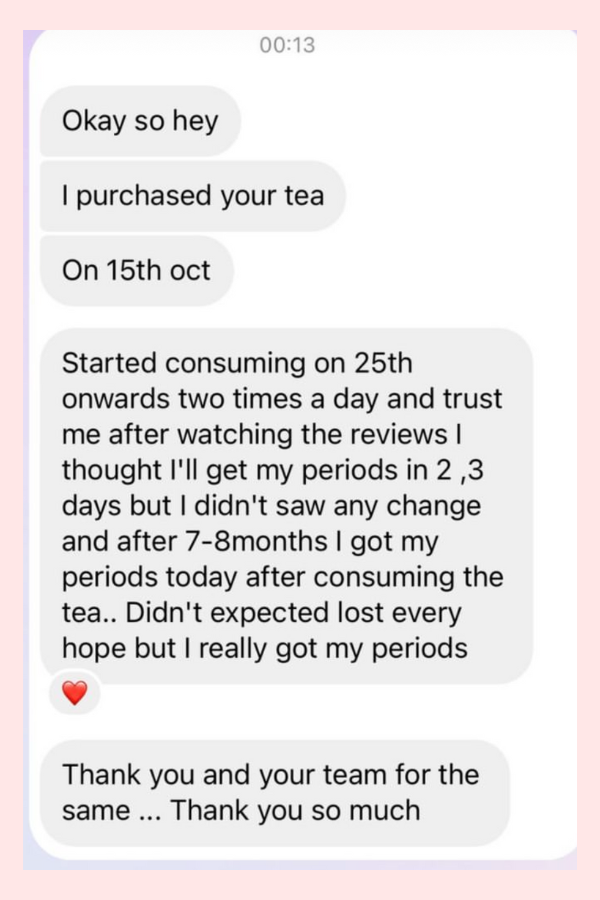







4 Reasons to buy
No. 1
PCOS supplement in India
Clinically
Proven Ingredients
50,000
Units Sold
Made by
Ayurvedic Doctors
Embracing a Root Cause Solution for PCOS with Herbs

Frequently Asked
Questions
The best time to take the tea is first thing in the morning and before sleeping. You can also take it alongside your breakfast.
It takes 3-6 months to see results alongside lifestyle changes
We recommend 2-3 cups daily
Yes, you can take the tea while trying to conceive.
We do not recommend taking it during pregancy.
We recommend lactating mothers to consume it 6 months post pregnancy.
Not really! This tea can be consumed by women who do not have PCOS but are looking for natural remedies to balance their hormones or just sip on something warm.
Yes, women with PCOS / PCOD can take this.
Your symtoms should not resurface provided you are also following a healthy lifestyle.
Reviews

Free Shipping
On Order above ₹500

Cash on Delivery
Available on the website

24x7
Priority Customer support
























































































































